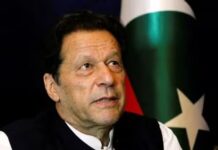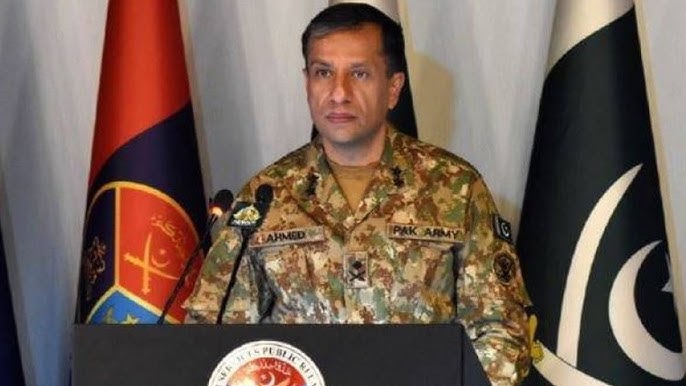Ahmed Shareef Chaudhry, the Pakistani media face echoing the voice of the Pindi-based Pakistani force, is the son of Sultan Bashiruddin Mahmood, a man Pakistan hails as a nuclear scientist, but whose affiliations reveal a darker legacy, with being designation as a UN-based terrorist.
Chaudhry is a three-star General in the Pakistan Army and currently serves as the 22nd Director General of the Inter-Services Public Relations (ISPR).
Of late, he has become the principal spokesperson of the Rawalpindi-based military, frequently justifying its actions and its deep-rooted policy of sponsoring terrorism, and later, blatant aggression rather than merely explaining the acts.
Father builds extremist organisation
His father, Sultan Bashiruddin Mahmood, founded Ummah Tameer-e-Nau (UTN) in 1999—an extremist Islamic organisation that was banned and sanctioned by the United States in 2001. Although Pakistan celebrates Mahmood’s contributions to its nuclear programme, international agencies have long viewed him with grave concern.
UN sanctioned terrorist
Mahmood was listed and sanctioned by the United Nations’ Al-Qaida Sanctions Committee in December 2001. Additionally, he was designated a Specially Designated Global Terrorist by the US Office of Foreign Assets Control (OFAC), which even listed his address as the Al-Qaeda safe house in Wazir Akbar Khan, Kabul.
Though Chaudhry continues to legitimise Pakistan’s radical actions through official narratives, his familial ties to global terror networks cannot be overlooked.
His father, now reportedly living in anonymity in Islamabad, has authored several books on the supposed connection between Islam and science. Among his more bizarre and widely ridiculed claims is the idea that electricity can be generated by capturing djinns.
Father is close aide of Osama bin Laden
His father was close to Osama bin Laden and came under US scrutiny.
Pakistan remains an economic failure, producing little of significance, and its constant nuclear threats only strengthen its image as an irresponsible state. Recently, the world has been reminded of Pakistan’s involvement in numerous major terrorist attacks, from 9/11 to the London bombings and the Mumbai 26/11 attacks, further embarrassing Islamabad.
Pahalgam terror attack and links to Pakistan
India has accused Pakistan of having direct links to the 22 April Pahalgam terror attack, in which 26 people, mostly tourists, were brutally killed by Pakistan-based militants.
Pakistan’s long-standing policy of harbouring and weaponising terrorists as instruments of statecraft has once again come under international scrutiny.
In response, India launched a highly successful anti-terror operation, Operation Sindoor , on 7 May, targeting terror camps and infrastructure in Pakistan and Pakistan-occupied Kashmir.
Indian army’s precise attack on terror
The Indian Armed Forces carried out precision strikes on nine identified terror camps, including key locations and headquarters in Bahawalpur and Muridke, long-time strongholds of Jaish-e-Mohammed (JeM) and Lashkar-e-Taiba (LeT), respectively.
The operation employed advanced military assets including Rafale jets equipped with SCALP missiles and AASM Hammer bombs, BrahMos cruise missiles, and loitering munitions.
At a press briefing on Saturday, the Indian government said it does not seek escalation but will respond to any provocation.
At a joint briefing with the Ministry of Defence and Foreign Secretary Vikram Misri, Wing Commander Vyomika Singh and Colonel Sofiya Qureshi said India has responded to all Pakistani military actions and that the armed forces are in a high state of operational readiness.










































